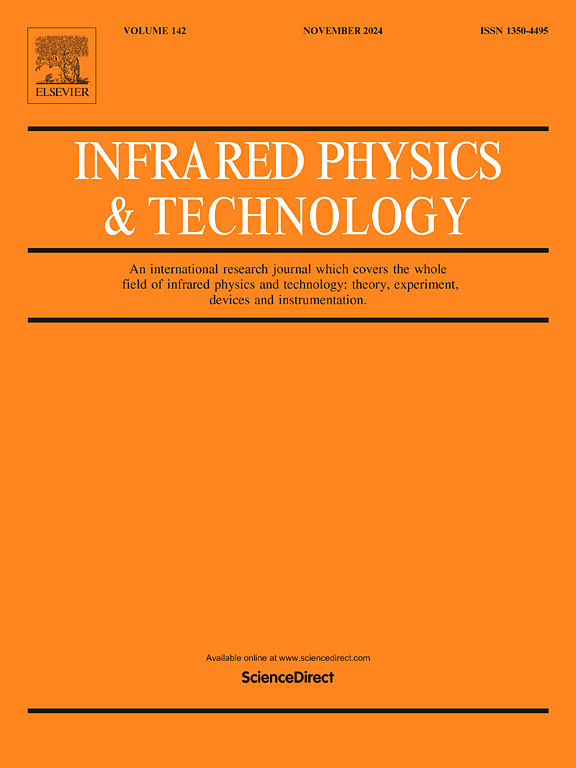High coupling efficiency with large axial direction coupling adjustment range in water-jet guided laser
IF 3.1
3区 物理与天体物理
Q2 INSTRUMENTS & INSTRUMENTATION
引用次数: 0
Abstract
In the traditional water-jet guided laser (WJGL) processing system, convex lens is used to focus Gaussian laser beam, where the waist and divergence angle are constrained. The focal depth is small, and there are problems such as divergence angle and aberration, which results in the difficult coupling adjustment because the adjustment range of laser coupling to water-jet fiber is limited to the Rayleigh range. In this study, non-diffraction laser (NDL) is generated by an axicon, which has the characteristics of small central spot and large non-diffraction range (NDR). The axial random coupling is realized in the NDR, and the problem of axial coupling between the focused laser and the water-jet generated by nozzle micro-hole is solved. Besides, this paper presents a novel technique to generate NDL by the combination of concave axicon (CCA) and convex axicon (CVA), which solves the small cone angle of the single CVA and the non-modulation defect of the corresponding optical and mechanical structure, and extends the starting point of the NDR to improve the coupling utilization rate of the NDR and the flexibility of the system. The focusing and coupling transmission characteristics of convex lens and axicons mode in WJGL are compared and analyzed. The generated NDL in the NDR at the axial reference coordinate point position of 50 mm and 70 mm is successfully coupled into the water-jet fiber. After the coupling transmission of 20 mm, the coupling efficiency, the morphology of the transmitted spot and the peak power density were basically the same, and the coupling efficiency of the central spot was about 81 %. However, the output spot peak power density and coupling efficiency decrease sharply when the axial coupling deviation exceeds 5 mm adopting convex lens. In contrast, the NDL can achieve a random coupling with high axial coupling tolerance in NDR. The research provides a solution for efficient adjustment and transmission of laser coupling into water-jet in highly stable WJGL.
水刀引导激光器的耦合效率高,轴向耦合调节范围大
在传统的喷水导引激光(WJGL)加工系统中,凸透镜用于聚焦高斯激光束,束腰和发散角受到限制。由于激光与喷水光纤耦合的调节范围仅限于瑞利范围,因此焦深较小,存在发散角和像差等问题,导致耦合调节困难。在本研究中,非衍射激光(NDL)由具有小中心光斑和大非衍射范围(NDR)特点的axicon产生。在 NDR 中实现了轴向随机耦合,解决了聚焦激光与喷嘴微孔产生的水射流之间的轴向耦合问题。此外,本文还提出了一种新颖的技术,即通过凹轴(CCA)和凸轴(CVA)的组合来产生 NDL,解决了单一 CVA 的锥角小以及相应光学和机械结构的非调制缺陷,并扩展了 NDR 的起点,提高了 NDR 的耦合利用率和系统的灵活性。对比分析了 WJGL 中凸透镜模式和axicons 模式的聚焦和耦合传输特性。在 50 毫米和 70 毫米轴向参考坐标点位置的 NDR 中生成的 NDL 成功耦合到喷水光纤中。耦合传输 20 mm 后,耦合效率、传输光斑的形态和峰值功率密度基本相同,中心光斑的耦合效率约为 81%。然而,当采用凸透镜的轴向耦合偏差超过 5 毫米时,输出光斑峰值功率密度和耦合效率急剧下降。相比之下,NDL 可以在 NDR 中实现轴向耦合公差较高的随机耦合。该研究为高稳定 WJGL 中激光耦合到水射流的有效调整和传输提供了解决方案。
本文章由计算机程序翻译,如有差异,请以英文原文为准。
求助全文
约1分钟内获得全文
求助全文
来源期刊
CiteScore
5.70
自引率
12.10%
发文量
400
审稿时长
67 days
期刊介绍:
The Journal covers the entire field of infrared physics and technology: theory, experiment, application, devices and instrumentation. Infrared'' is defined as covering the near, mid and far infrared (terahertz) regions from 0.75um (750nm) to 1mm (300GHz.) Submissions in the 300GHz to 100GHz region may be accepted at the editors discretion if their content is relevant to shorter wavelengths. Submissions must be primarily concerned with and directly relevant to this spectral region.
Its core topics can be summarized as the generation, propagation and detection, of infrared radiation; the associated optics, materials and devices; and its use in all fields of science, industry, engineering and medicine.
Infrared techniques occur in many different fields, notably spectroscopy and interferometry; material characterization and processing; atmospheric physics, astronomy and space research. Scientific aspects include lasers, quantum optics, quantum electronics, image processing and semiconductor physics. Some important applications are medical diagnostics and treatment, industrial inspection and environmental monitoring.

 求助内容:
求助内容: 应助结果提醒方式:
应助结果提醒方式:


